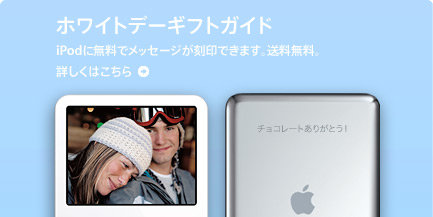I remain convinced that the foreigners who live in Japan furnish an important service to the country, by providing a voice of criticism and pointing out things that need to be changed. Time and time again I’ve noticed the power the opinions of gaijin have to effect change in Japan, whether it’s asking to have a non-smoking section added to a restaurant or pointing out that the restroom was not as clean as it could be (things Japanese would say “it can’t be helped” about). Just today, while going to lunch, we spotted a young woman driving with her 4-year-old daughter who was standing up in the front seat. The idea of child carseats are still somewhat alien to Japan, a country that only passed its first carseat law in 1999, and children playing inside moving cars is something I’ve seen all to often. When we stopped at a light I went into seigi no mikata (“champion of justice”) mode, got out of the car, and publicly reprimanded the mother, telling to put her damn child in a seat belt, at the very least. She immediately complied, embarrassed at being lectured while people in the surrounding cars looked on. Because it was an American doing the admonishing rather than a Japanese person, I’m sure that it’s an event she won’t soon forget, and hopefully she’ll change her ways.
“You know you’ve been in Japan too long when you are jealous of your friend because the camera strap that came with his new Minolta camera says ‘With you for the best scenes of your life’ and yours doesn’t.” Japanese people do have a special relationship with the English language, since nearly all of them study six years, or up to ten years if they go to college. While most don’t become fluent in the language, the fact that people are familiar with it is not lost on companies, who have gotten quite good at creating poetic “Image English” for their products. Just as the creators of the Swatch brand came up with that name because they didn’t realize it sounded kind of silly in English, Japanese creators of English slogans can be quite creative, and the slogans can make you feel all warm and fuzzy inside. Some examples of Image English I like are:
For Beautiful Human Life (make-up company Iona)
A happy present from the earth (printed on stationery)
Fashionable Picture Magazine (on magazine masthead)
Urban Contemporary Wave (slogan of hair gel maker Mandom)
Inspire the Next! (slogan of Hitachi)
Drive Your Dreams (Toyota)
Feel Wood (Sumitomo Forestry)
For Precious Life (toilet maker Inax)
Young and Clean (political slogan for the LDP some years ago)

Are you ready for White Day, on March 14th? This is the day when men who received a gift of chocolate on Valentine’s Day give some sort of return gift — okaeshi in Japanese — to the wives, girlfriends, daughters and female co-workers who gave them something. It’s pure marketing fluff, of course, but kind of fun, and companies are happy to take advantage of the event by thinking of ways to sell products. Even Apple gets into the spirit of White Day their Japan store page, by suggesting that men buy engraved iPods for their better halves as a way of saying “Thanks for the chocolate!”
One of the most popular new products to come along recently has been Unazukin (oo-NA-zu-keen), a line of stylish electronic toys that look like a cross between Russian nesting dolls, Weebles and Easter Eggs. These electronic toys interact with you, by nodding (unazuku in Japanese, where the toys get their name from) or shaking their heads from side to side when you talk to them. Bandai has a great new idea for the toy line: Unazukin Gift For You, made specially for giving as gifts, with messages printed right on the toys and a place for you to write a personal note on the box. Today we’ve got Happy Birthday, Anniversary, and Thank You in stock (the last one might be good for White Day…?). Since they’re quite inexpensive, why not buy several to keep in your desk at work for when you need a gift on short notice?
To be a foreigner in Japan is to be at peace with standing out in a crowd, since more often than not you’re going to be the only non-Japanese around. Sometimes the best way to manage this is to embrace your differences openly, and show off your uniqueness for all to see. In this spirit, we used our wacky shirt-making minds to create Kiss Me, I’m Gaijin, a really cool design that that shows a stereotypical foreigner holding a cup of coffee, with a message that makes use of the blocky, uniquely Japanese style of the katakana writing system. A great potential conversation starter with cute Japanese exchange students on campus!















